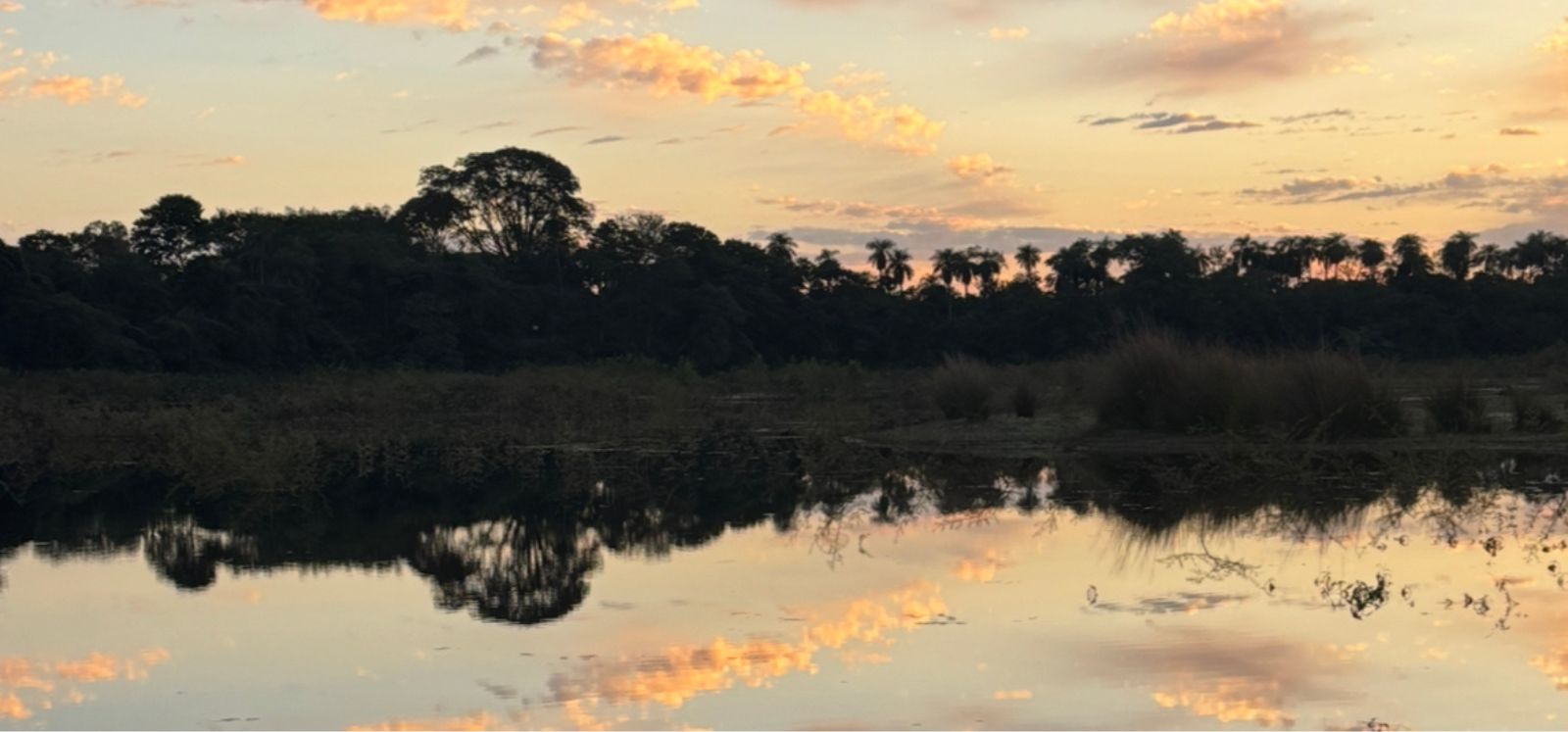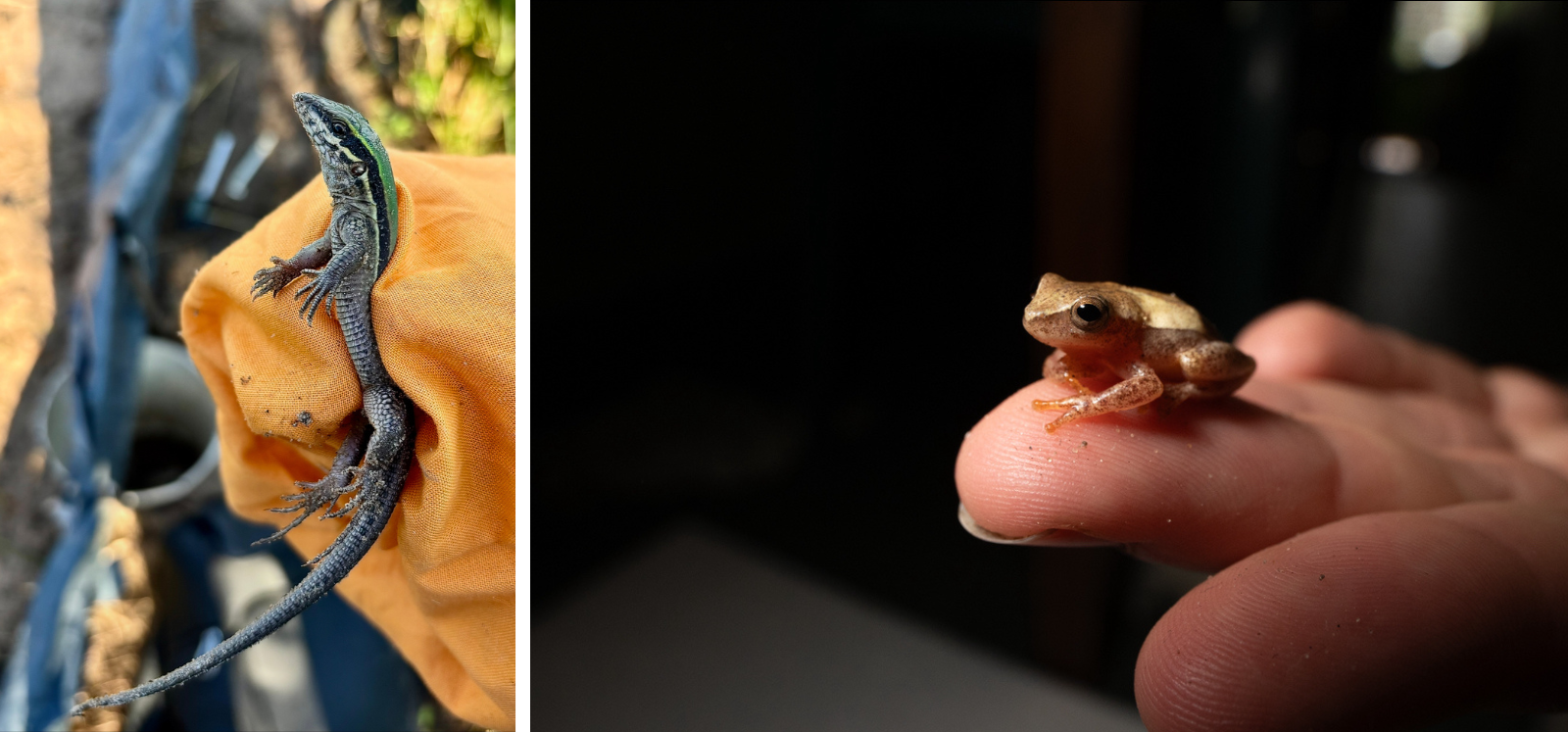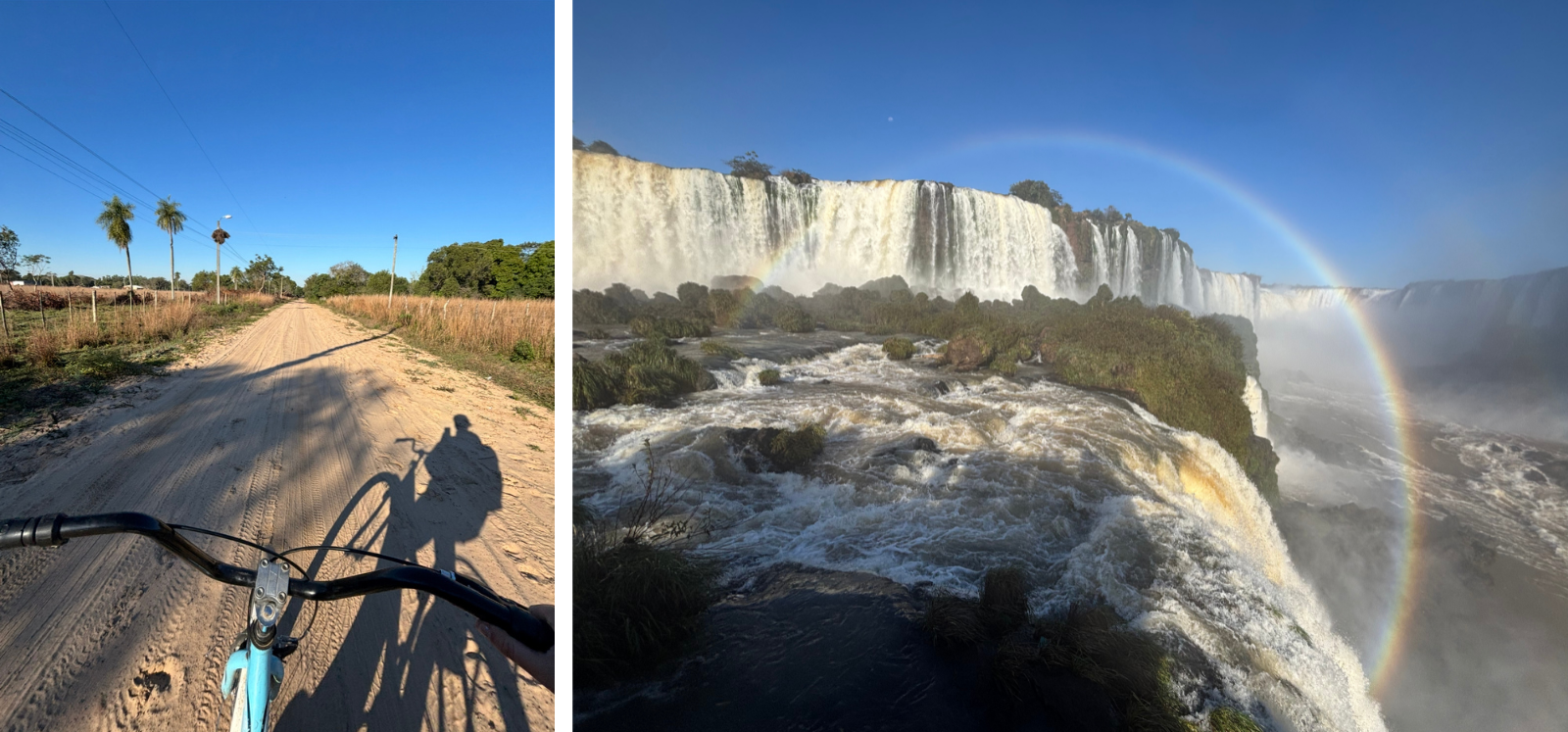My time with in Paraguay with Para la Tierra
Ecological Management and Conservation Biology student, Melissa Morrisson, shares how the MacQuitty Scholarship supported her 13-week placement with Para la Tierra.

I am writing this to express my utmost gratitude for the aid received through the William and Betty MacQuitty Scholarship. The grant facilitated my travels to carry out my MSc Ecological Management and Conservation Biology Work Placement module in Pilar, Paraguay with non-governmental organisation Para la Tierra(PLT). My travel period lasted 13 weeks from 19 April until 19 July, with the bursary payment covering internship costs, including accommodation and food for the duration of my stay. During my placement, I assessed the relationship between anthropogenic disturbance and herpetological diversity and abundance. In order to do this, I conducted a 12-week pitfall trap study, comparing three sites of varying disturbance levels. These included a built-up area, the periphery of an agricultural field, and a riparian corridor with adjacent forest fragment.
The travel bursary enhanced my master’s studies by allowing me to study both a poorly researched area, in terms of ecology and conservation, and taxonomic group regarding herpetofauna. Amphibians and reptiles remain one of the least studied groups, despite their unprecedented rates of decline. Such taxa are vital for indicating the health of our ecosystems, with amphibians acting as signposts of aquatic and terrestrial health, however, are not as desirable for research and protection, when compared to mammals and birds. Additionally, the research conducted may ultimately aid in achieving RAMSAR status for the Ñeembucú wetland complex and species within, through the creation of a species inventory and analysis of the impact of human activity on vulnerable taxa.

My time in Paraguay also granted me experience in teaching, through work in city Eco clubs and rural indigenous schools. Bearing witness to the varying levels of poverty, opened my eyes to the importance of conservation in the broader sense. We cannot conserve the environment if first we ignore the issues faced by the people. Visiting and helping in the indigenous communities really shed light onto the futility of my own problems. The director of PLT, Rebecca Smith, said something that will stay with me when reflecting on my time with these communities: these children will always remember with fondness and joy the silly outsiders who pretended to be bats and chased them while wearing blindfolds and shouting in Guarani. Furthermore, within my work placement module, I had to create a science communication piece. For this, I decided to write and illustrate a children’s book, both in English and Spanish, for use in the local schools and Eco clubs. Hopefully, through this, my time in Pilar will have a long-lasting effect.
Supplementary to this, I was privileged to get to share my science with an undergraduate course from Ohio, by lecturing them on my methodology and research, and actively taking them into the field to see it firsthand.
Furthermore, living in the “City of Birds” allowed me to experience a different culture and language, one which I had only learnt 10 weeks prior to my arrival through the help of the Language Centre at Queen’s and Duolingo. With Pilar being a small city, I regularly found myself engaging in small talk with the locals, especially when frequenting the same study site and bakeries. This allowed me to gain not just high proficiency in conversational Spanish, but also an insight into the similarities and differences faced across the globe. In some ways, everyday life was familiar and comfortable, yet in others could not be any further from my ‘normality’ in Belfast.
Additionally, during a week off in July, I was privileged enough to visit Iguazu Falls from both Argentina and Brazil. Seeing one of the seven natural wonders of the world left me speechless sand reconfirmed the importance of natural area protection. During my time in Argentina, I was lucky to see native species such as Coati, Toucans and Tropidurus.

In terms of personal development, my time abroad helped in building self-confidence and resilience. This became particularly apparent when learning a new sport, Kūdō, a Japanese mixed martial art widely practised across the country. Furthermore, the independence of creating my own project further enhanced my self-belief and trust, allowing me to believe in my own passions and capabilities.
Regarding, future plans the experience has cemented my desire to pursue a career in conservation, specifically in either research or rescue/rehabilitation of species of conservation concern. For a research pathway, my time in Paraguay has informed my knowledge in developing scientific methodology, assessing limitations, analysing results and forming/testing hypotheses. This was further confirmed by my discovery of a new species record for the area, with it only being recorded in the north of the country prior to my research. Additionally, staff at PLT would like to pursue a publication of my scientific research and accompanying report, to inform ecological knowledge and need for conservation of the previously underrepresented area.
